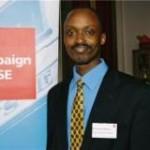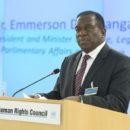On Writing Sudan (And Getting It Wrong)
Last Sunday the Washington Post ran a column by me in the section This Writing Life. It begins:
Some years ago in a rebel-held enclave of Sudan, I met a man whom I had reported as assassinated. He was chief Hussein Karbus, and I was introduced to him by the man I had said killed him, the liberation fighter Yousif Kuwa Mekki. Both of them thought my mistake – made in a human rights report – was hilarious. In truth, Karbus had gone into hiding, and many had feared he was dead. It’s characteristic of Sudanese society not to let political differences – even accusations of homicide – get in the way of amicable social relations. It’s also characteristic of Sudan that the worst will usually come to pass. In recent years especially, some commentators have gained a reputation for prescience by parroting that mantra.





